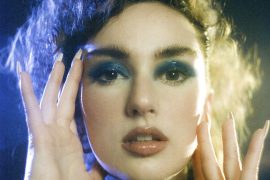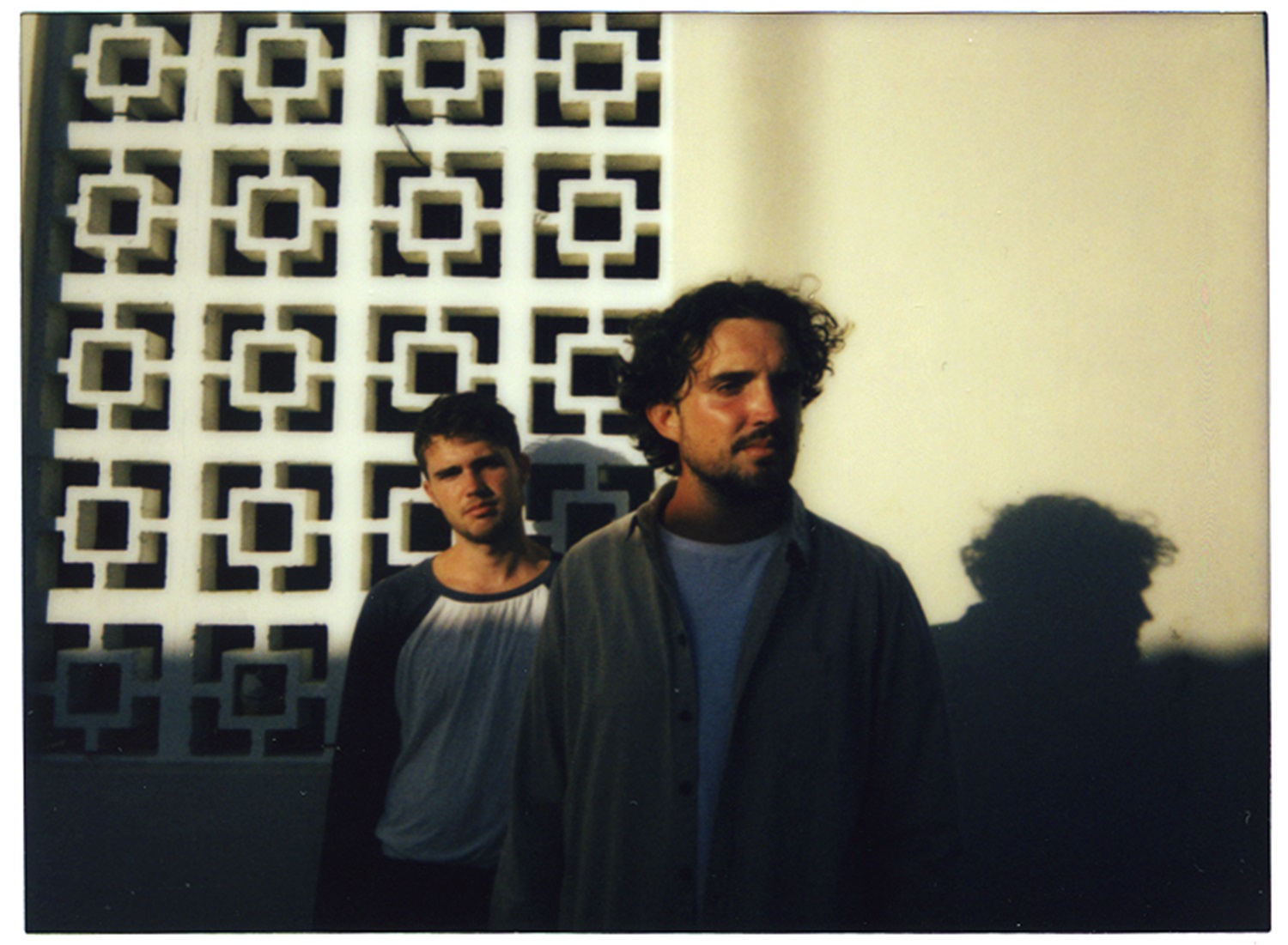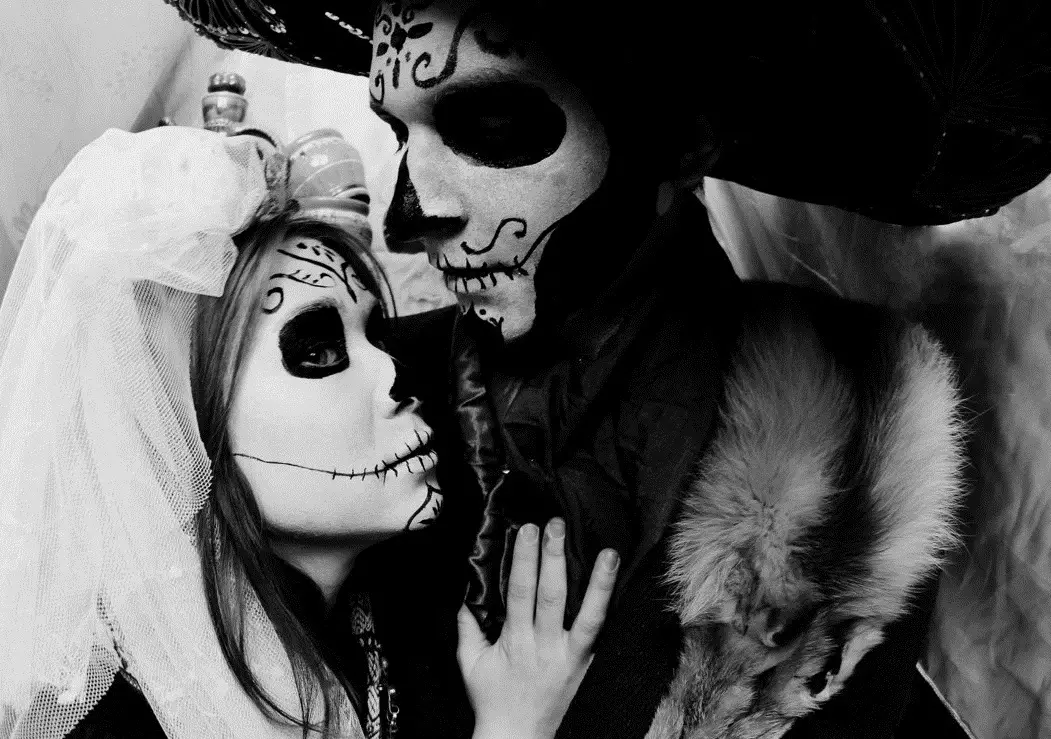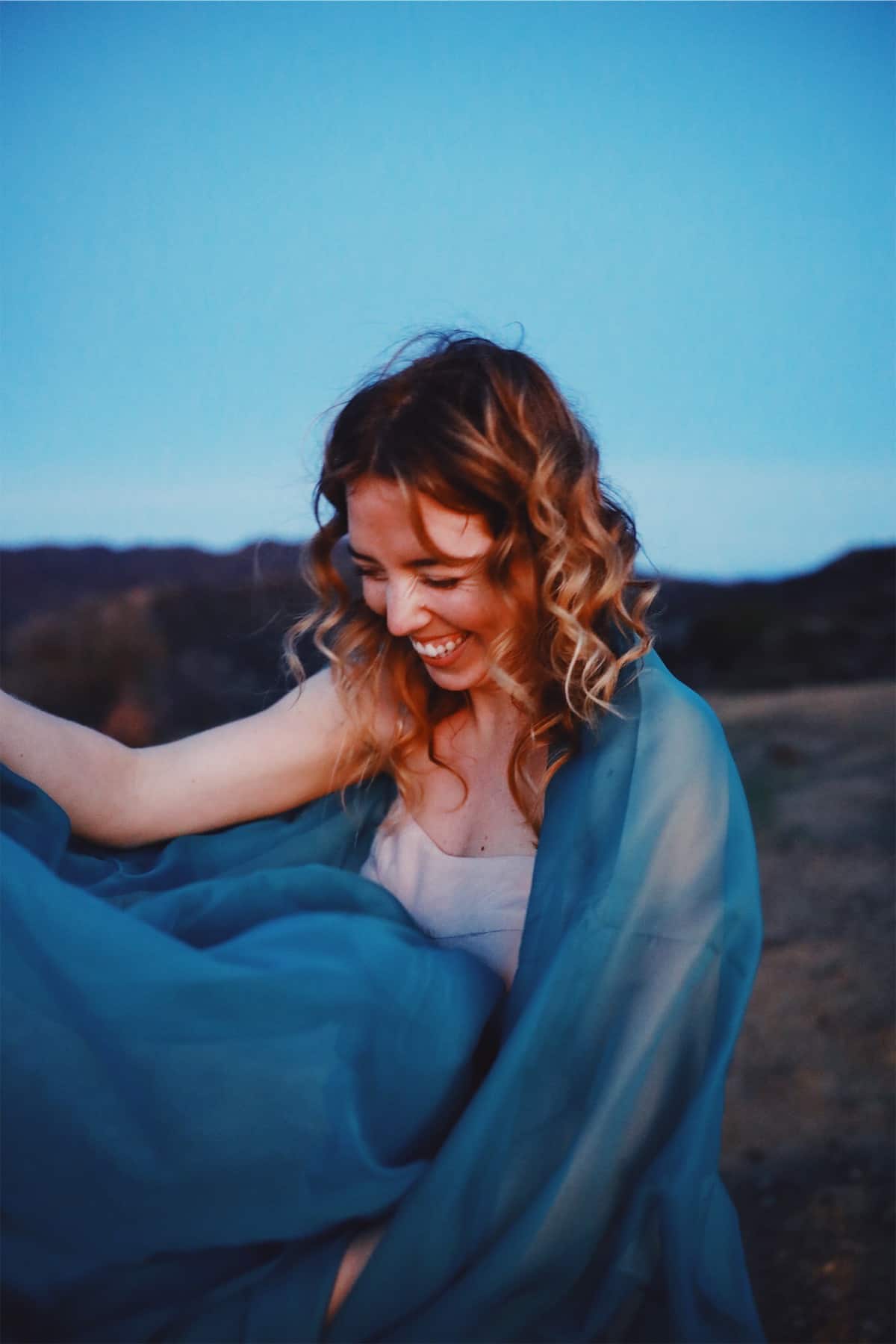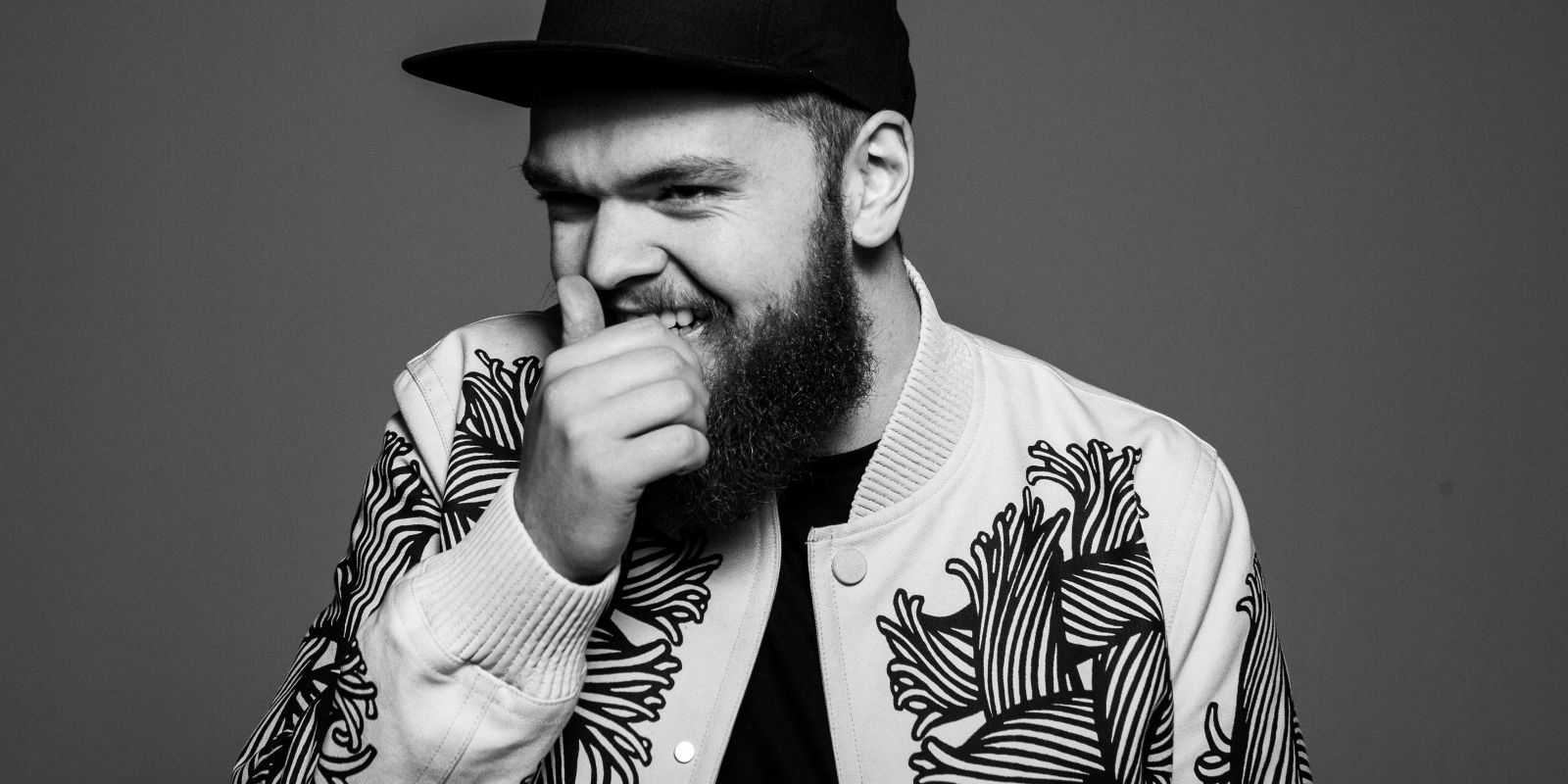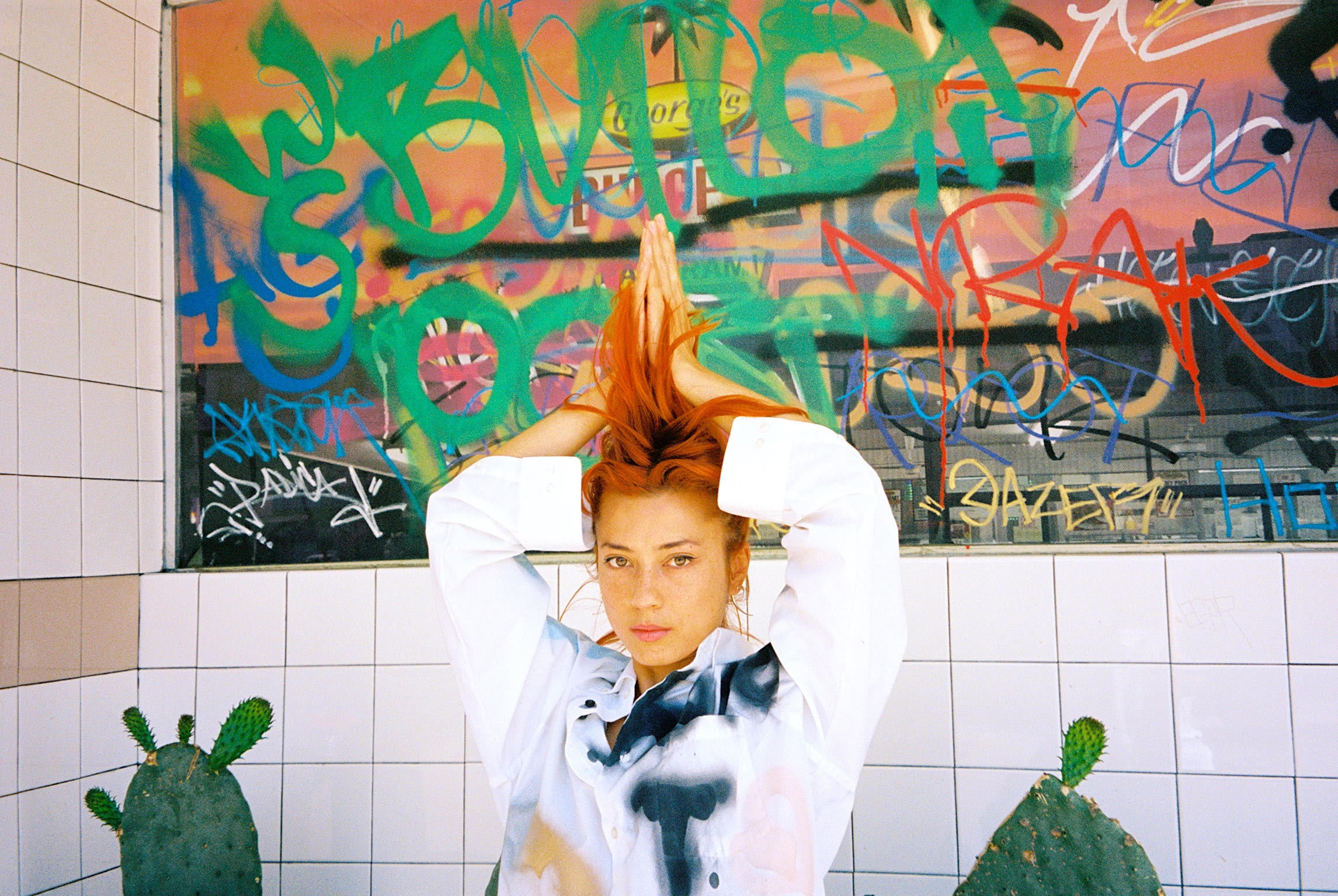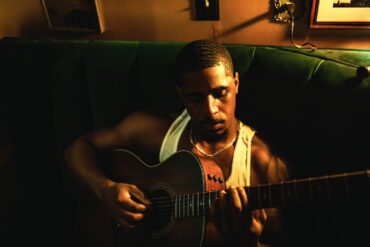Drawing as much on opposing visual and textural elements as on musical genres as different as rap and jazz, Audrey Nuna’s second album ‘TRENCH’ is a multifaceted creature with a soft underbelly and a hard exterior – or maybe it’s the other way around?
Stream: ‘TRENCH’ – Audrey Nuna
Audrey Nuna is not about to tell us that she was raised on American rap or R&B or even jazz – a few of the many ways people categorize her eclectic, experimental blend of unique music.
Rather, being raised in an immigrant household, the Korean-American listened to very little American music growing up. And it’s those influences–along with an array of visual inspirations ranging from classical Korean hair-grooming practices to war-zone scenery– that form the audio and visual masterpiece of her new, second album, TRENCH.

In our interview below, Nuna discusses with Atwood Magazine her songwriting process, which often starts with piano and is influenced by her diverse musical background.
She highlights the duality in her music, exemplified by the album’s two parts: “Hard Feelings” and “Soft Skin,” each exploring different emotional landscapes that she says are meant to be at odds, but at the same time bring the same elements together in a duality that turns vulnerability into strength.
Read our full conversation, and listen to TRENCH, out now Arista Records!
— —
:: stream/purchase TRENCH here ::
:: connect with Audrey Nuna here ::
— —
Watch: “Baby OG” – Audrey Nuna

A CONVERSATION WITH AUDREY NUNA
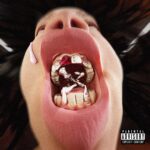
Atwood Magazine: Let’s start with your sound: Your versatility is really impressive and unique, combining R&B, rap, jazz and pop. How has that journey happened for you?
Audrey Nuna: Thank you for the kind words. I love hearing that, because I really do come from a place where I started out singing, and because that is my first love and my number one craft, I’ve always enjoyed coming from a place of being a songwriter. And a lot of the first songs I ever wrote were written first and foremost on piano, with my producer, Anwar, just playing some keys on the piano and us really building out a song that way. At the core, I think we’re just both music lovers. I grew up listening to a very select category of music because my parents are immigrants – I didn’t really listen to a lot of American music growing up. or got put on.
But meeting someone like Anmar, who was, at heart, truly a jazz musician, classically trained and just a lover of harmony and chords and melodies, I think that was really my truest musical upbringing. Listening to people like Sadé and her producer, Stuart Matheson, and seeing the connection that they had when it came to writing songs. I think we took a lot of inspiration from that. I would say we never choose genre. Whatever happens to be stewing in the front of our brains that day is where we end up landing.
Are there places or situations where you feel like you write words the best?
Audrey Nuna: I’ve always loved words. Writing was always my favorite class growing up. But when I sit down to write, sometimes it’s really hard for me. When I’m just walking around, a lot of things will inspire me, and a lot of thoughts will come to my head, and a lot of daydreaming will happen. It’s the source of a lot of the lyrical ideas.
As a kid I was always told that I was, like, off in a different world. I think a lot of times I’m just like daydreaming and thinking about random things, even as an adult. Which is very inconvenient, sometimes! I honestly just can’t help it. But yeah, I have so many iPhone notes, I would say that that’s my saving grace, because I can just write certain things down as they come.
The single “Mine” is really fun. Talk me through that evolution and the Brandy sample idea.
Audrey Nuna: A lot of everything I do, honestly, is very inspired by ’90s R&B, and even the visual aesthetic from that time. And I started singing because I love people like Brandy, Aaliyah and Sadé. We took something from a classic genre and added some Jersey club, which was in line with the whole album theme of combining hard and soft elements.
This project is about duality and tenderness and toughness, and how those two could come together. The original is about competing for a guy’s attention, so we flipped that and I think this one is really about having someone in the palm of your hand.
This project is about duality and tenderness and toughness, and how those two could come together.
You’ve got a lot of say in your music videos. Where does that creative drive come from?
Audrey Nuna: I love visuals. My dad owned a clothing factory growing up, so I was a lot fashion. I’ve always been really interested in that side of things. And to me, the whole picture is both music and visual, and the combination, the synthesis of both, is everything to me. If a song inspires visuals for me, like, that’s how I know I really, really love it.
I really appreciate all the visuals for this album that have to do with your hair.
Audrey Nuna: Thank you. Hair is really interesting, right? It’s a big part of this project. I think the first book I ever received was a children’s Bible, and I remember the story of Samson and Delilah and the idea of hair being a source of power. In Korean culture, back in the day, women cherished their hair and never cut it unless they got divorced or shunned or something stupid like that. But yeah, hair being a source of power is just a really interesting concept for me that I wanted to dig into for this project. Oh, cool.

We’ve got two parts, or sides, to the album: Soft Skin and Hard Feelings. What do those symbolize?
Audrey Nuna: Those two phrases really encapsulate the whole concept of toughness and vulnerability together. And it was interesting, because when I was trying to track this, I realized that they’re very inverse and polar, but they’re also really made of the same elements. Hard feelings, to me, has slightly more of a conclusive element. Soft skin is kind of like asking the question, and hard feelings is a bit more of a response. But at the end of the day, I kind of realized that they’re one in the same.
I think I learned how to embrace vulnerability in a very empowering way on this album. I did realize that I’m a very sensitive person. I also had a lot of internal introspective things of flesh out, but at the same time, I had bitterness towards certain people that I also needed to work through. So I think that whole internal/external thing is such a great point and super true for this project.
You play with tempo a lot – slowing down, speeding up, that sort of thing.
Audrey Nuna: Yeah, I think that’s a sonic theme for sure. My producer, Anwar, and I love to try new shit and some trippy stuff. We’ll just literally chop and screw the entire album for ourselves to just have on our phones and listen to. There’s no rhyme or reason. Honestly, we just, we just love it, and it’ll probably always be a theme.
What do you think that you learned this time around that you didn't know on Liquid Breakfast?
Audrey Nuna: Such a good question. I think I learned that I will always be yearning and reaching for the same purity that was on that first project for the rest of my career. I don’t think I’ve realized that initial purity of, like, truly making things without a career, just because you know you love it, is something you have to protect very vigilantly. It’s something that I’m going to have to search for as I continue. It makes me very grateful for that first process, because there’s just a beauty in not knowing what you’re experiencing is so rare.
And then we’ve got the fantastic album title, TRENCH. What does that title mean to you?
Audrey Nuna: I really loved the sonics of the word first. The idea of a mechanism of war, and the idea that a trench would be very harsh, almost abrasive, with barbed wire around it and all that. coverage structure. But then if you zoom in, there’s this idea that there’s just these flesh blobs – these human beings, warm-blooded creatures, being organized in these very non-human, unnatural, harsh ways.
It’s a very visual depiction of soft skin, hard feelings. So the visual inspired me, and sonically, the word itself has both a soothing quality, but it’s also very consonant heavy. So I just liked that. I just liked that one way you hear it, it’s very harsh, and another way you hear it, it’s very soothing. A lot of different things about the word really encapsulated the project.

What do you hope that people take away from the album?
Audrey Nuna: The biggest honor and privilege for me is when people tell me that the music has attached to certain parts of their lives and memories. I think that’s an amazing thing. So that’s definitely one thing.
But I would just hope for people to – as abstract and experimental as this project is – to give a feeling of understanding. That’s why I make music to connect and to get on the same plane as a lot of strangers. I think that’s really the best thing about music.
— —
:: stream/purchase TRENCH here ::
:: connect with Audrey Nuna here ::
— —
— — — —

Connect to Audrey Nuna on
Facebook, Twitter, TikTok, Instagram
Discover new music on Atwood Magazine
© Leeay
TRENCH
an album by Audrey Nuna

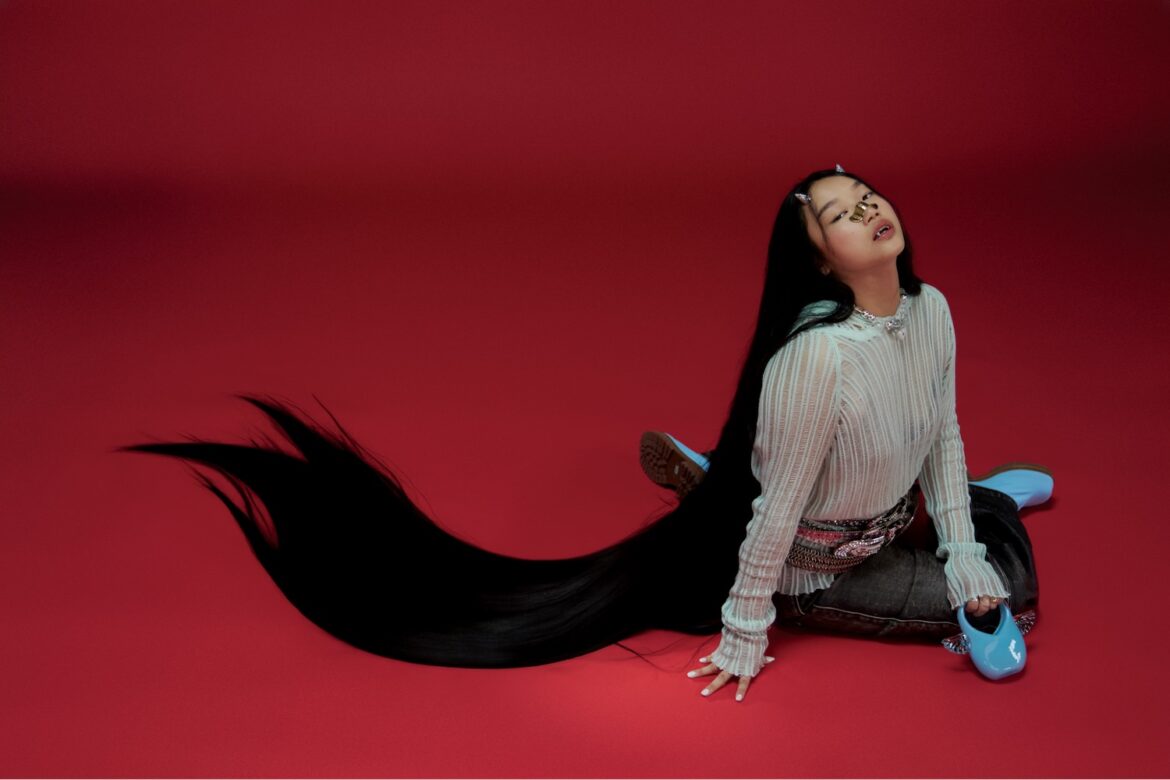
 © Leeay
© Leeay